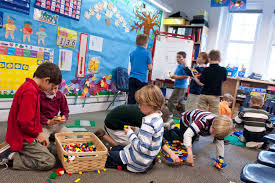Reduced Physical Activity: Decreased playtime limits the opportunity for children to engage in physical activities, leading to insufficient exercise crucial for their physical development.
Impact on Motor Skills: Insufficient playtime hampers the development of gross motor skills such as running, jumping, and balance, impacting overall physical coordination.
Social interaction Constraints: Playtime fosters social interactions and cooperative play, aiding in the development of interpersonal skills that are crucial for overall growth.
Health Implications: Limited playtime might lead to sedentary behaviors, potentially contributing to health issues like obesity, cardiovascular problems, and poor overall health in children.
Cognitive Development: Play is also essential for cognitive development, creativity, problem solving, and emotional regulation, which can be hindered with decreased playtime.

Play in Schools


